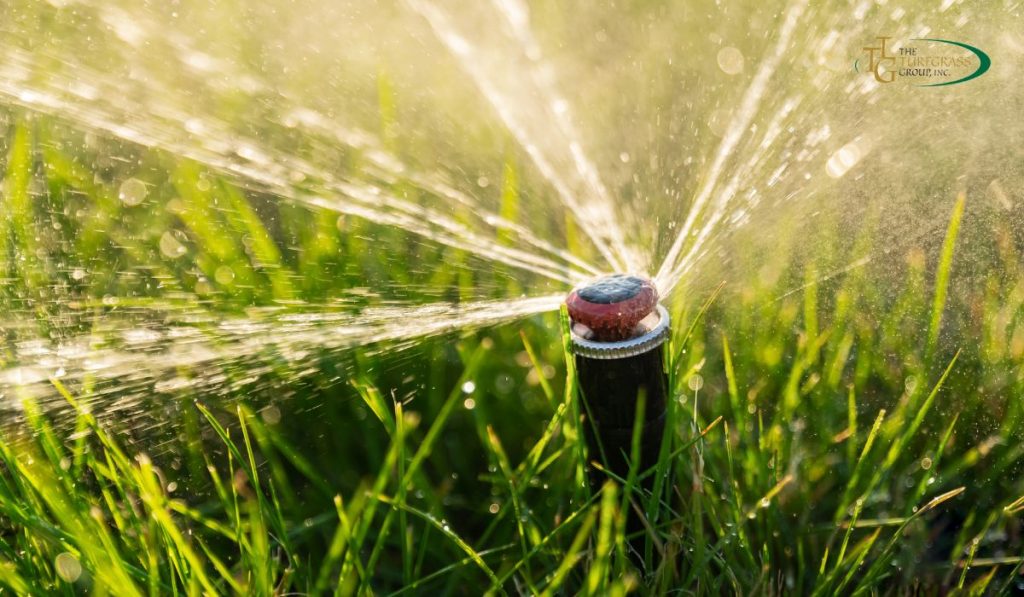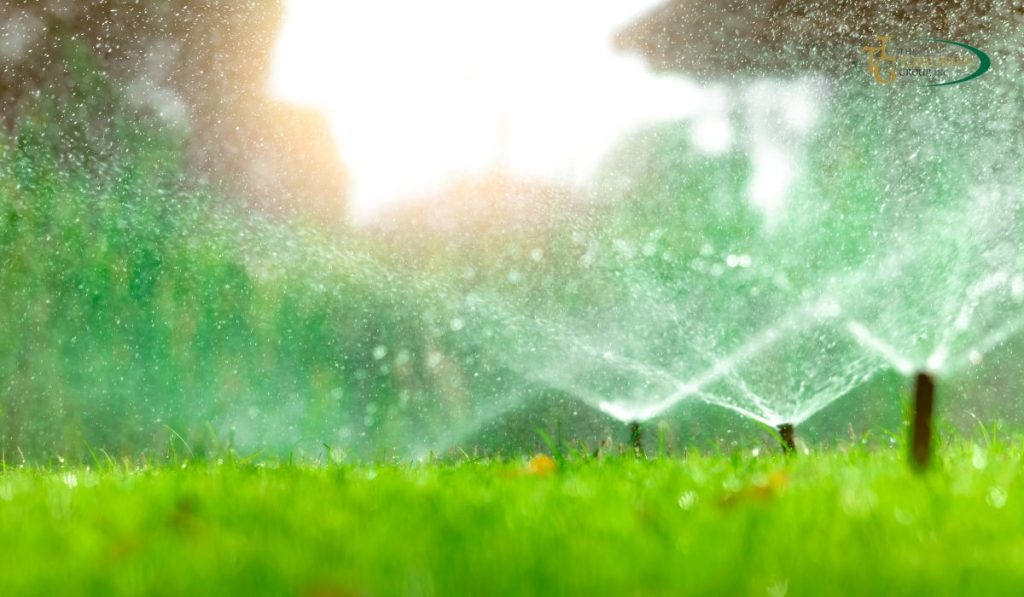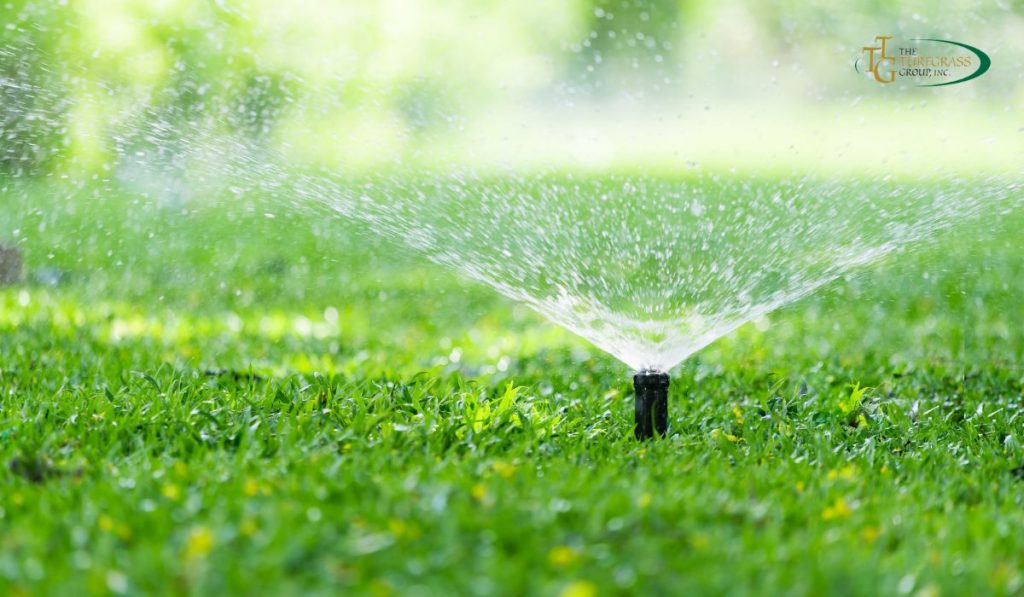
Your Bermuda Grass is tough but requires regular care to thrive. One of the ways of maintaining its growth is watering it – so long as you do so correctly. Bermuda withstands heat and drought, so you won’t need to water it as frequently as you should for other types of grass.
But did you know that watering has all sorts of rules? There’s an ideal time to water the grass. Over-watering can have consequential effects like causing discoloration or disease. Underwatering also has its consequences. And how often you should water your beloved Bermuda Grass lawn depends on the season. Here’s all you need to know about watering Bermuda Grass.
Importance Of Proper Watering For Bermuda Grass
If you spoke the language of grass, your Bermuda Grass would remind you to water it on time, and thank you! It, however, speaks the language of color by flaunting an attractive green when cared for well. Here’s the importance of proper watering of your Bermuda Grass.
Maintains the Lush Look
A well-hydrated lawn looks healthier and lush because of enough moisture from watering it properly. A healthy lawn keeps greenhouse gases like ozone and sulfur at bay. It releases fresh oxygen and utilizes carbon dioxide to make the air strong. Besides, healthier Bermuda Grass looks fuller and greener.
Protects Your Bermuda Grass from Diseases
Over-watering your Bermuda Grass can cause fungal diseases. You might think that watering your grass more frequently you are helping it. It would put the grass at risk, and finally, the bill would knock you off balance. Overwatering also causes the poor establishment of grassroots. Weeds and pests are also common in an excessively watered lawn.
Secures Valuable Soil Nutrients
Excessively watering your lawn can take away the valuable nutrients in the soil. Lesser nutrients will mean less supply for your Bermuda Grass. Underwatering, on the other hand, also damages your soil. Dry soil is highly likely to erode in the form of dust and blow away with nutrients. Therefore, the soil requires enough water, not too much or too little.

Conserves Water
Watering done properly can conserve water. Conserving water is showing love to mother nature as well as your wallet. The time you water your Bermuda Grass, the water volume, and the water frequency all come to one accord – enough moisture as required.
What Are The Water Requirements For Bermuda Grass?
Bermuda Grass requires about half an inch of water. The grass, which thrives in southern states like Georgia, is drought resistant and might give you a wrong impression. Even though it can withstand dry periods, the grass turns yellow and tan when chocked. After a few rain showers, it will green up but will be thinner and prone to weed infestation.
Bermuda Grass requires about one to 1.4 inches of water. More frequent watering should be three-quarter inches of water into the soil after every three or four days. Never water the grass daily unless after seeding or when it’s a young lawn. During summer, when there’s significant rainfall in the south, avoid watering for some time—only water when your lawn needs it.
Signs Of Underwatering Or Overwatering Bermuda Grass
Determining the amount of water your Bermuda Grass needs, especially if you are from Georgia, can be challenging. Underwatering and overwatering have their effects on your grass. Here are the main signs from both.
Signs of Overwatering
- Weeds: Overwatering your Bermuda Grass gives weeds a chance to thrive.
- Thatch: Dead plant material forms and prevents nutrients from reaching the roots and attracts insects.
- Fungus: Excess moisture facilitates the growth of fungus. You’ll notice patches of mushrooms growing on your lawn.
Signs of Underwatering
- Slow growth: Lack of water or enough water causes slow growth. It also reduces the size of the blades.
- Dry soil: Lack of enough water causes dry soil.
- Weak spring back: The grass will not spring back sooner when disturbed or stepped on.
Best Practices For Watering Bermuda Grass Lawn
Bermuda grass might not need much water like most grass types, but you cannot deny it water completely. Here are the best practices for watering the Bermuda Grass lawn.
- In spring and fall, Bermuda Grass should be watered only if there’s been a long hot, dry period and the grass is curling and wilting.
- Water it in the morning to prevent burning.
- Water for 2-4 hours weekly during summer.
Other Factors To Consider For Your Bermudagrass Lawn Care
Bermuda is subject to certain weeds, pests, and diseases. Proper maintenance of your Bermuda Grass lawn will help to resist these issues. Let’s discuss them in depth.
- Weed Control: Common weeds that can attack your lawn include annual bluegrass, crabgrass, clover, nutsedge, or spurge, depending on your location. You can use pre-emergent or post-emergent herbicides to kill the weeds.
- Pest Control: Insecticides can come in handy in killing pests like Bermuda grass mites and armyworms that damage your lawn.
- Disease Control: Your Bermuda Grass can be attacked by a disease that leaves a devastated lawn. Bacterial or fungal infections can take a toll on your lawn. Fungicides help to alleviate such issues.
Water Your Bermuda Grass Correctly and Keep Your Lawn Healthy!
For a healthy and thriving Bermuda grass lawn, water it correctly, and it will thrive. If you are looking for professional assistance treating your grass or are interested in seedlings, contact The Turfgrass Group. We’re experts in growing Bermuda Grass in Georgia, and we would be glad to help.
FAQs
Q: How often should I water my Bermuda grass?
A: Bermuda grass should be watered deeply but infrequently. As a general guideline, water your Bermuda grass once or twice weekly; provide about 1 inch of water per watering session. Adjust the frequency based on weather conditions and soil moisture levels.
Q: How much water should I apply to my Bermuda grass?
A: Aim for about 1 inch of water per watering session when watering Bermuda grass. This amount allows the water to penetrate the soil deeply, promoting more profound root growth and drought tolerance. Measure the water with a rain gauge or use the “can test” method to determine the time needed to apply 1 inch of water.
Q: Should I water my Bermuda grass in the morning or evening?
A: It is best to water Bermuda grass in the early morning. Morning watering allows the grass blades to dry off during the day, decreasing the risk of fungal diseases. However, watering the sunset can lead to prolonged moisture on the grass, creating a favorable environment for infections to develop.
Q: What signs should I look for to determine if my Bermuda grass needs watering?
A: Watch for signs of water stress in Bermuda grass, such as a dull bluish-gray color, wilted or folded leaves, footprints or mower tracks that remain visible, or a lack of springiness when walking on the lawn. These are indications that it’s time to water your Bermuda grass.
Q: Are there any specific watering recommendations for newly planted Bermuda grass?
A: Newly planted Bermuda grass requires consistent moisture to establish strong roots. Water the newly planted grass daily for the first two weeks, providing enough water to moisten the soil. Gradually transition to the regular watering schedule after the grass has rooted, typically within 2 to 3 weeks.
Q: Can I overwater Bermuda grass? What are the consequences?
A: Yes, overwatering Bermuda grass can have negative consequences. Excessive watering can lead to shallow root growth, increased vulnerability to diseases, and nutrient leaching from the soil. Overwatering may also create a favorable environment for weeds to thrive. Therefore, proper watering practices are essential to maintain a healthy Bermuda grass lawn.

Q: How do I adjust my watering schedule during heavy rainfall?
A: During heavy rainfall, adjusting your watering schedule is essential to avoid overwatering. Monitor the rainfall levels and pause or reduce your irrigation to prevent waterlogging the soil. Only resume watering once the ground has had a chance to dry out and the grass shows signs of water stress.
Q: Should I know any watering restrictions or guidelines specific to my area?
A: Watering restrictions and guidelines can vary depending on your location. It is essential to acquaint yourself with local water regulations and policies set by your municipality or water management authorities. These restrictions may include specific watering days, time restrictions, or limitations on water usage.
Q: Should I water my Bermuda grass differently during the winter months?
A: Bermuda grass dorms during the winter months and requires less water. Adjust the watering schedule in winter by decreasing the frequency and providing water solely when the grass displays indications of drought stress. It is essential to avoid overwatering during this period to prevent rot or disease development.
Q: How can I measure the water my Bermuda grass receives?
A: To measure the water your Bermuda grass receives, use a rain gauge or place empty cans (like tuna cans) throughout your lawn. Run your sprinklers as you would during a regular watering session, and then measure the water collected in the gauge or cans. This will provide you with an idea of the water depth applied.
Q: Are there any alternative methods, such as drip irrigation or sprinkler systems, that work well for watering Bermuda grass?
A: Dip irrigation systems and properly designed sprinkler systems can effectively water Bermuda grass. Drip irrigation brings water directly to the root zone, reducing waste and promoting efficient water absorption. Sprinkler systems with appropriate nozzles and coverage patterns can provide even water distribution.
Q: How long should I run my sprinklers or irrigation system to ensure adequate watering for my Bermuda grass?
A: The duration of sprinkler or irrigation system run time depends on several elements, including the water output rate, soil type, and weather conditions. As a general guideline, aim for 30 to 45 minutes of watering per session, providing enough water to reach the recommended 1-inch depth. Adjust the time based on your specific conditions and the performance of your irrigation system.